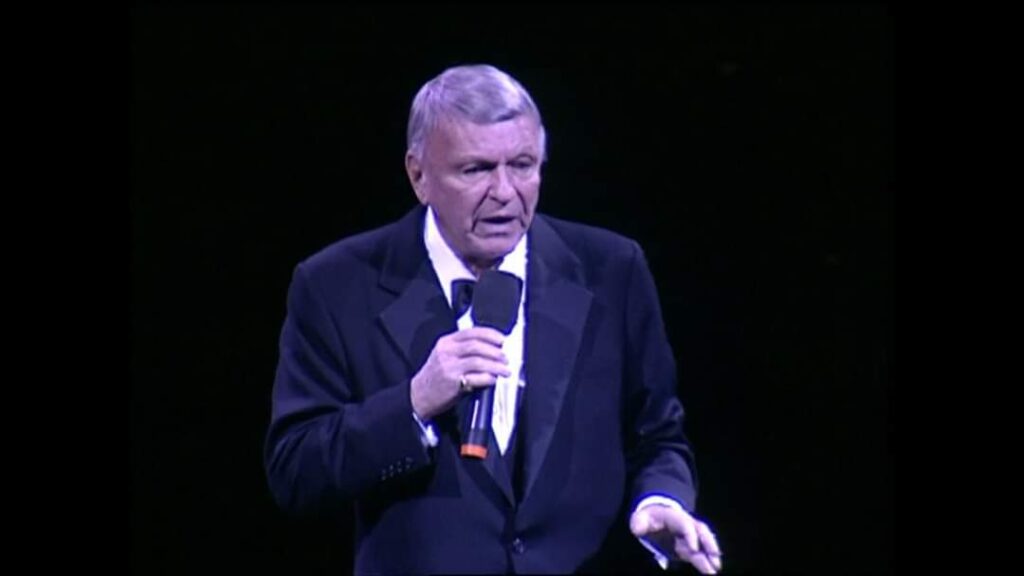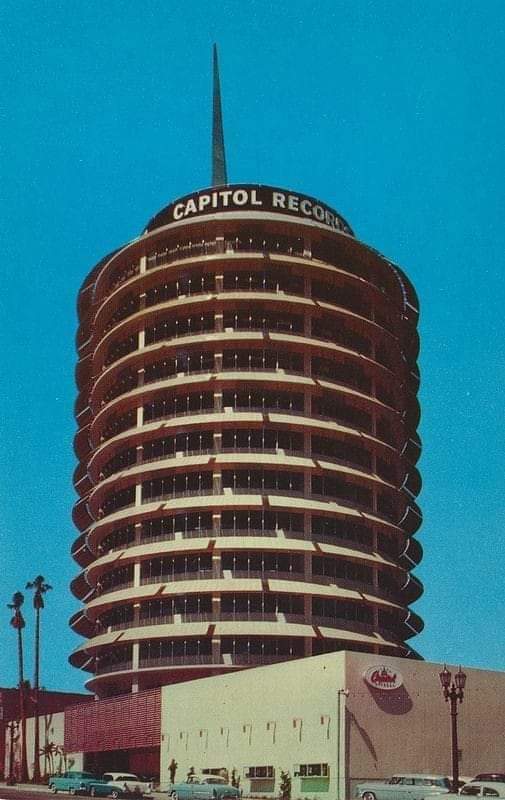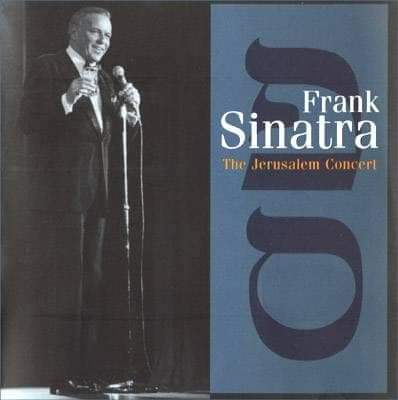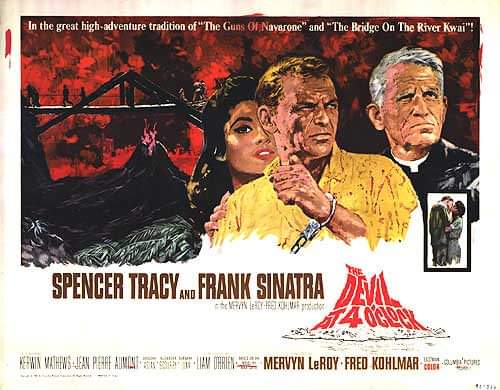
THE LAST YEARS OF FRANK SINATRA
By Mahnuel Muñoz
EPISODE 6
“One wonders what Sinatra is thinking in his last concerts when he declaims the famous lyrics of “My Way”: ‘And now the end is approaching and I face the fall of the curtain.’ Only now, in his late seventies, do those words have true meaning in Sinatra’s own life. Does he consider his poor health and the nearness of his death or does he not think at all about his lyrics, sailing over the music until receiving a thunderous ovation at the end of the song? Does the ovation matter anymore?”
Tom Santopietro, “Sinatra In Hollywood” Thomas Dunne Books, 2008
On January 9, 1993 he receives an award from the Palm Springs International Film Festival in honor of the achievements of his entire acting career. The actor Robert Wagner acts as master of ceremonies and throughout the tribute you can see fragments of some of his best films. During the event, film director George Sidney (1916-2002), who worked with Sinatra in “Anchors Aweigh,” 1945) and “Pal Joey” (1957), gives him the highest praise: “His first take is better than most people’s tenth. He always sought to do better and took risks.” The recognition of his contribution to the seventh art continues in the month of April, when Capitol launches a compilation titled “Sinatra At The Movies”, with nineteen songs that appeared in his feature films during the period 1953-1959.
On January 15, composer Sammy Cahn, who has the honor of being the person who has contributed the most songs to Sinatra’s songbook, dies of a heart attack. Especially memorable are his collaborations with Jule Styne (“Three Coins In The Fountain”, “Thee Christmas Waltz”, “I Guess I’ll Hang My Tears Out To Dry”…) and James Van Heusen (“All The Way”, “ High Hopes”, “Come Fly With Me”…). With each friend that leaves, a part of Frank’s spirit dies too.
His struggle for music to triumph over pain becomes more heartbreaking. Although the illness quickly diminishes his abilities, the artist refuses to slow down his work pace and throughout the year he will give more than eighty concerts inside and outside the United States. Devoting himself to his audience until exhaustion seems to be the only medicine that really works for him. In April he gives four concerts in a row at the Kravis center in West Palm Beach, Florida and manages to hang the “no tickets” sign every day. He repeats the feat the following month in a series of five recitals at the Civic Opera House in Chicago, and when he appears at the War Memorial Stadium in Rochester, New York, he sells out the ten thousand available seats in just four hours.
After the concerts, Frank and his friends head to a good nearby restaurant where they have previously been instructed about the protocol to follow for the menu and service. The singer likes to move around in his limousine with a police escort that has the lights and sirens on, causing confusion among passersby and residents of the areas through which the procession passes. After filling the stomach, almost always with succulent Italian recipes, the drinks arrive. The next stop is a bar that should always have a pianist ready to play while Sinatra and his friends are present. It is not unusual for him to sing some old “saloon song” to the delight of his guests. The party lasts until the early hours of the morning. Everyone is amazed at the resistance of the “Old Man”, as they nickname him. The truth is that he is terrified of the loneliness that comes when friends leave.
The “Old Man” still has the mischievous child who enjoys doing mischief very much alive inside him. Shirley MacLaine says that during a flight while on tour, Frank doesn’t want to sleep and starts filling the shoes of everyone on the plane with candy and snacks. Singing, drinking, joking… every alternative seems good to sleep. On one occasion he confesses to the Spanish singer Julio Iglesias “Friend, I’m afraid that death will find me sleeping. Don’t you think that artists deserve to die on stage?”
On May 29 he embarks on a new European tour, with a concert in Sweden (Gothenburg) and five in Germany (Dortmund, Hamburg, Berlin, Stuttgart and Cologne) with the young singer and guitarist John Pizzarelli (1960)* as opening act.
Upon his return to the United States he again sold out the tickets for the concerts booked at the Music Theater in Westbury, New York, between June 10 and 13, sharing the bill with the comedian Corbett Monica. The concerts show the artist’s delicate state of health. A Newsday reviewer writes: “It was agony to watch the greatest artist of our time wander around the stage, unable to read the seven huge screens that showed him the lyrics.” Another columnist, Wayne Robbins, sadistically dwells in New York Newsweek on the disorientation that afflicts the singer and concludes his lynching by stating that “Sinatra should think about hanging up his gloves.” A couple of months later, journalist Ray Kerrison offers a much more positive report in the New York Post, echoing Robbins’ diatribe: “I don’t know what happened in Westbury. All I know is that on Monday he gave me one of the best nights of entertainment of my life.”
*NOTE: John Pizzarelli is the son of guitarist John Paul “Bucky” Pizzarelli (1926-2020), a prolific musician who has worked with Benny Goodman, Les Paul, Oscar Peterson, Stéphane Grapelli, Benny Green and Antonio Carlos Jobim. He participated in several Sinatra recording sessions in the 60s, 70s and 80s.
If you want to visit more articles about the life of Frank Sinatra enter the following Sinatra Radio 24h link: https://sinatraradio24h.com/category/articles/
We remind you that you can also listen to Sinatra Radio 24 hours on your mobile phone by downloading our free applications for Android in the Play Store https://play.google.com/store/apps/details?id=sinatra.radio24h







